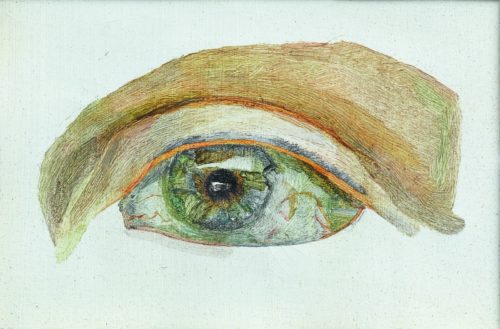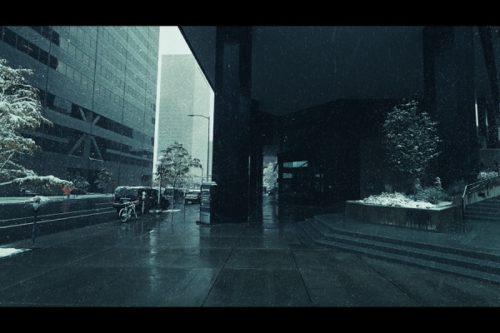
Lucy McKenzie
“When I speak of moralism, in this context, what I am concerned with, in general terms, is the misuse of morality for ends and purposes that are themselves vicious or corrupt. Moralisers present the facade of genuine moral concern but their real motivations rest with interests and satisfactions of a very different character. When these motivations are unmasked, they are shown to be tainted and considerably less attractive than we suppose. Among these motivations are cruelty, malice and sadism. Not all forms of moralism, however, are motivated in this way. On the contrary, it could be argued that the most familiar and common form of moralism is rooted not in cruelty but in vanity.
The basic idea behind vain moralism is that the agents’ (moral) conduct and conversation is motivated with a view to inflating their social and moral standing in the eyes of others. This is achieved by way of flaunting their moral virtues for others to praise and admire.”
Paul Russell (Vice Dressed as Virtue, Aeon 2020)
“People are false in different ways. Some false men always want to seem what they are not; others—more trustworthy—are born false, deceive themselves in the way that would suit both the thing itself and also our own condition and qualities. Such misjudgements make our tastes and minds false in innumerable ways; our self-love is flattered by every seemingly good thing that comes before us; but as there are various kinds of good things affecting our vanity or temperament, we often accept them out of habit, or out of convenience; we accept them because other people are accepting them”
Francois de La Rochefoucauld (Collected Maxims and Other Reflections)
“When they were building the walls, how could I not have Noticed! But
I never heard the builders, not a sound. Imperceptibly they’ve closed me
off from the outside world.”
C. V. Cavafy ( Walls)
The Corona event and the near immediate “lockdown” or quarantine (of mostly, almost entirely, healthy people) seems, I think, to be closely interconnected in its social expression to screen habituation, social media (in particular) and digital economy.
“Drawing on the ideologies of both growth and pluralism, liberal thinkers such as Arthur Schlesinger Jr. advocated a post–New Deal politics cleansed of “ideology” and ‘class struggle’. “
Eli Zaretsky (Political Freud)

Helene Herzbrun
Zaretsky’s chapter is titled The Maturity Ethic. While I take a lot of issue with Zaretsky on some things, this is an insightful take on the American mind, and the post WW2 shifts in how the bourgeoisie wanted to imagine themselves, and also how they grew toward a hyper punitive culture of snitching and stigmatizing.
It is hard to grasp the current draconian policies (in the U.S. and U.K. primarily) that have quarantined entire perfectly healthy people. It has happened very quickly. I am still trying to understand how it was that Denmark and Norway took the actions they took, and who it was advised them, and how they saw fit to suspend government and democratic processes. How did this fable of mass death originate? But that is perhaps a topic for another post.
“..the apparatus of administrative and political domination extends into all spheres of social life. This extension of domination is accomplished through the ever more efficient and predictable organizational techniques developed by institutions like the factory, army, the bureaucracy, the schools and the culture industry. The efficiency and predictability of these new organizational techniques are made possible by the application of science and technology, not only to the domination of external nature, but to the control of interpersonal relations and the manipulation of internal nature as well.”
Seyla Benhabib (Mapping Ideology)

Cho yong ik
What interests me here is the public response to this quarantine. The working class basically has not accepted the official narrative. The bourgeoisie, or the educated white upper end of it, has completely embraced it, and even seem to welcome it. The fact that there are numerous businesses now making masks suggests a prevailing belief in an extended quarantine, or at least an extended partial quarantine. When vendors, and this happened in L.A., on sidewalks demand you download an ap before selling you lemonade, there is something going on that is below the level of official narrative.
“Pulling the strings of socio-economic relations, the bourgeoisie instrumentalized reason so that it served its utilitarian purposes and turned the Enlightenment project into a medium of control. “
Antonio Vadolas (Perversions of Fascism)
But cutting across these ideas and the more visible responses in the public is a new life attached to the screens. A new technocracy that includes a slowing coalescing new aesthetics. Before digging into the technology I want to return to the evolution of this uniquely American idea of maturity. Remember that as psychoanalysis migrated from Europe to the U.S. the emphasis shifted dramatically. From a search for the truths of trauma and causes of suffering (often social and historical) the focus became adaptation and adjustment. The focus became personal and the social/historical was all but eliminated. This was now an entirely individual experience.
“The private sphere supplied the terrain on which the maturity ethic flourished, but “maturity” also underlay a changing conception of the public realm.( ) Central to cold war ideology through its stress on private life, integral to the normalizing project of the Keynesian welfare state, analysts propounded the new emphasis on productive power, power that worked from inside the individual and not from above or outside. Thus absorbed, ego psychology functioned as a form of social control.( ) Claiming the high ground “above” politics, some, perhaps many, analysts cooperated enthusiastically with Defense Department and CIA initiatives that funded analytic research for cold war ends”
Eli Zaretsky (ibid)

Carla Klein
The presentation of maturity became one associated with dispassion and superiority. As Zaretsky notes, in a perfect example, the crime of homosexuality became the illness of homosexuality — far more linked to shame. Most of the newly medicalized analysts also condoned the McCarthy HUAC hearings.
There are myriad elements to this reductive narrative I am creating here, but the point that I find relevant for the Corona event is that linked to this ‘maturity ethic’. For the 50s and early 60s, and maybe even before WW2, the Keynesian welfare state (sic) encouraged an optics (one that incorporated American psychoanalysis) that featured a self disciplined father centered family where the mental health of the patriarch was linked to responsibility and productivity. But that father center began immediately, before WW2, to dissolve and fragment. The mass consumer culture that began in earnest in the 50s was the front edge of something Zaretsky describes in an interview…
“More broadly, the New Left and feminist struggles with psychoanalysis helped usher in a massive, antinomian cultural shift that rejects the idea of human depth and valorizes image, surface and appearance. This was of course a complex process but if we look at the aspects that involved the discrediting of psychoanalysis we can see that the ideas that were destroyed or discredited — such ideas as those of the unconscious, repression, regression and the ego — were the very ones we need today if we are to understand the shift itself, its positive and negative character, the ideas we need if we are to move forward.”
(Interview with Ken Fuchsman, History Workshop)

Jurgen Klauke, photography.
The Corona story is explained in part by looking at Cory Morningstar’s work — which I seem to link to nearly every posting, but that is because it is crucial to digest this material. http://www.wrongkindofgreen.org/
There are a number of things happening psychologically right now. What Zaretksy calls the ‘Maturity Ethic’ is, however, perhaps the primary one. But the fetishized symbols of maturity have changed since the 1950s. And in one sense the Corona event has served to create space for personal virtue signaling. The Cambridge Dictionary defines it this way:
“an attempt to show other people that you are a good person, for example by expressing opinions that will be acceptable to them, especially on social media.”
Note that is directly tied to social media. Maturity is viewed as responsibility, but the meaning of responsibility itself has changed. The pure element of propaganda is explained nicely by a graph Helen Buyniski included in her recent post on her blog http://helenofdestroy.com/

This is not new material, of course. And it is the secondary aspects that interest me here. Maturity and responsibility have come to be merely optics. The mask wearing phenomenon is also nicely described by Buyniski..
“Face masks have become both the visual symbol of the Covid-19 epidemic and the dominant religious fetish for the Cult of Corona. While cities from New York to Laredo, Texas have adopted regulations mandating them in public places and chain stores like Costco have barred unmasked customers from their premises, it’s hard not to notice those individuals so devoted to the mask-wearing ritual that they sport the face-coverings in their own cars (with the windows rolled up) and when running down epidemic-emptied streets. Poor messaging is partly to blame – the Centers for Disease Control has repeatedly changed its narrative on who should wear masks, from “sick people” to “only healthcare workers” to “everyone.” However, the Cult of Corona’s devotion to the mask extends far beyond following the recommendations of a mere public health agency. The mask has taken on a supernatural significance that far outweighs its utility in disease protection.”

Prudencio Irazabal
But this is only more of the pseudo science that is trotted out relentlessly on media and which appears in political policies, too. The idea of ‘expert’ is now almost just self proclaimed. And yet, possibly because of this the dependence on scientific experts has never been greater.
The screen centered culture is now ubiquitous. The aesthetics associated with this version of screen culture (everything from social media to Joe Rogan) are increasingly infantile — but it is actually something sub-infantile. If that’s possible. The desire is to traffic in correspondence free of actual thought or reasoning. Free of anything mimetic. And that seems worth examining. The absence of emotional engagement with cultural product, with artworks, is perhaps new in human history, actually. As psychoanalysis became focused entirely on the ego, the culture had all but eradicated the ego. It is also distanced from the body. The mimetic is always firstly in the body, even if fleetingly. This is an aesthetics that exists outside the body.
And this is the anti-experience of contemporary TV and film, largely. The loss of an ability at storytelling and a absence of characters who hold ideas, who can express ideas, has meant essentially a form of pattern recognition is all that is left. One does not feel these stories, if they even reach the level of story. They are scanned and evaluated as one would evaluate an Ikea instruction sheet.

Eric Poitevin, photography.
“The myth of a hostile Nature, against which the subject has to defend herself, is a form of alienation and control (this hypothetical rivalry between nature and man persists even nowadays. We often hear about Nature “taking revenge” or of its “wrath” against human civilization, every time a natural catastrophe occurs). This endorses the idea that man can control the natural world, while, in effect, it is an illusory idea that only amplifies human suffering.”
Antonio Vadolas (ibid)
If the loosening of the structure of the pre WW1 patriarchal family, the erosion of that ethos of discipline, accumulation, and self control (maturity signs) led to an increasingly narcissistic rejection of traditional forms of repression, it brought with it the early expressions of emotionless capitalist social relations — a growing sentimentality that saw expediency psychologically in surface attention and latent apathy and anxiety. This was the instrumentalizing of bourgeois morality and with the advent of the internet and social media these trends ossified in one sense and were intensified in others.

Lucian Freud
The influence of social media cannot be overestimated for the educated bourgeoisie today. I have a snap shot of TV actress Alyssa Milano cheering on people (on twitter) to wear their masks. She is, in fact, wearing a knit mask. This level of stupid is hard to fathom in some ways, but as Buyniski notes, the mask is now the fetishized totem of the class split vis a vis Corona. It is simply not about health.
“Clearly, the ‘psychological’ novels of the nineteenth century preserve the romantic tradition: the human mind is fathomless and the unconscious a secret chamber. Unlocking the unconscious can release elemental forces, some of which can assume identities. Thus, we are provided with a new demonology – sanctioned by science. And the new demons of the unconscious, like their hellish counterparts, are just as capable of taking control. The unconscious is the source of everything imaginable, but, in a world where anything can be imagined, to open the sluice gates of the unconscious is always potentially dangerous.”
Frank Tallis (Hidden Minds)
The two cautionary tales of the 19th century are Wilde’s The Picture of Dorian Gray and Stevenson’s Jekyll and Hyde. (and perhaps Dostoyevsky’s The Double) And Frank Tallis’ very interesting book, which is a sort of history of the unconscious, suggests just how far the shrinkage of psychic expression has become. The shift in psychoanalysis from Freud and Ferenczi and Fenichel to the adjustment conservatism of Sullivan, Carl Rogers, and even people like Jordan Peterson is reflected in the shallowness of contemporary culture. Artists tend to work at unlocking access to something hidden, whatever model of the unconscious one wants. Something of which we are not aware. Creativity is tied into areas of ourselves that require contemplation, silence, solitude usually, and which are in turn linked memory and all of which is highly ineffable. For many, if not most contemporary artists, regardless the medium, the process they have been taught is one whose primary design affect is to keep people in their head, out of their body, and analytic.

Tomoo Gokita
“The Buddhist view is that identity (or consciousness) is to the brain what the shape of a wave is to a moving body of water. The wave exists, but oniy in a very limited sense. Contemporary neuroscience shares this view entirely: the unconscious activity of the total brain produces electrochemical ripples and the shape of those ripples is us. Yes, we exist. But only in a very special sense, and even then, only just.”
Frank Tallis (ibid)
The damage of a screen habituated society has meant, under the shadow of the Corona event, that people are willingly and openly harming their own children in the name of some abstract idea of safety.
“As a character disorder, narcissism is the very opposite of strong self-love. Self-absorption does not produce gratification, it produces injury to the self; erasing the line between self and other means that nothing new, nothing “other,” ever enters the self; it is devoured and transformed until one thinks one can see oneself in the other—and then it becomes meaningless. . . . The narcissist is not hungry for experiences, he is hungry for Experience. Looking always for an expression or reflection of [oneself]. . . . one drowns in the self.”
Richard Sennett (Fall of Public Man)

Giulio Turcato
Freud wrote in Neurosis and Psychosis (1929) that…“we know that other forms of psychosis, the schizophrenias are inclined to end in affective hebetude.” And within this discussion …touching on hebetude, Winnicott wrote a lot about the inability to dream. In Playing and Reality (1971)..“Dreams fit into object relating in the real world and living in the real world fits into the dream world in ways that are quite familiar, especially to psychoanalysts. By contrast, however, fantasising remains an isolated phenomenon, absorbing energy but not contributing either to dreaming or to living. To some extent fantasising has remained static over the whole of this patient’s life, that is to say dating from very early years, the pattern being established by the time she was two or three. It was in evidence at an even earlier date and it probably started with a “cure” of thumb sucking.” I am taking some of this from Jonathan Sklar’s book Landscapes in the Dark.
There has been a lot written about the loss of Utopian dreaming. Utopia has in fact come to have almost entirely negative associations. On a micro level the inability to dream, both as repetition symptoms of traumata, and as fantasies or wishes, renders an entire generation (in the U.S.) mildly autistic, cognitively impaired, and emotionally stunted. I think that screen damage has today robbed much of the youth of western society of the ability to, literally, dream. Daydreams and fantasies are hugely narcissistic and in my experience consumerist and often about gadgets or technology (reified), and nightdreams lack any actual dreamwork. On the societal level the atomization of culture, now starkly parodied (and materialized in exaggerated form) in the self-distancing meme, suggests a society that is …or a significant portion of a society…is drifting into at least mental hebetude. There is a clear class division, however. And what is revealed is the haute bourgeoisie has suffered the most cognitive trauma, and functions the least coherently. The underclass and much of the blue collar working poor are cynical and increasingly distrusting.
“It is true that the emptiness, and the wish for emptiness and homogenisation, that forms part of deep early longings to which both the traumatised individual and the fascist returns, is common to both men and women. This substratum of the fascist state of mind – what Bollas and Chasseguet-Smirgel are describing, that is the wish to simplify the mind, to wipe out the contents of the mind, the wish to return to a place of no conflict and no frustration, the wish to demolish the ego and be part of a bigger entity – all this is part of a universal wish and a universal danger. In its extreme it is part of the death instinct as understood by Freud. “
Christina Wieland (The Fascist State of Mind and the Manufacturing of Masculinity)

Flor Garduno, photography.
From another perspective, Richard Sennet (ibid), writing about Max Weber, noted….
“The loss of a ritual religion (Catholicism) and the rise of capitalism lead to a common end: it is denial of gratification for purposes of validating the self. This is “worldly asceticism.” By denying oneself pleasure in concrete experiences, one shows one is a real person. The ability to delay gratification is the sign, supposedly, of a strong personality. In Protestant terms, it is denying oneself the pleasure of ritual, especially absolution for sins; in capitalist terms, it is denying the gratification of oneself sensually by use of one’s money in the company of others. Worldly asceticism thus erases sociability through ritual or through expenditure. ”
Now, he goes on to compare narcissism and what he calls Worldly Asceticism: and there is a truth in how similar they are in some ways. Both project a self into the world. A desire to be seen as worthy somehow. Sennet adds…
“The second trait of narcissism in which asceticism plays a role is blankness. “If only I could feel”—in this formula the self-denial and self-absorption reach a perverse fulfillment. Nothing is real if I cannot feel it, but I can feel nothing.”

Xavier Comas, photography.
These observations are thirty years old. And I think the difference now is in the cognitive deficit of the screen habituated public. And the Corona event has revealed the calcified state of the American mind. The ruling class has launched a project that has been in the works for decades. One reason many cannot accept this idea or deride it is because the idea is, in fact, delusional. How successful it will be depends on two things, I think. One is just how genuinely afraid people have become — not of the virus, but of speaking out. Of themselves. And two, how afraid people who will speak out have become of about being wrong. Or, in other words, how much people can stare down the assaults on social media, in corporate media and how much they trust their own sense of something being ‘wrong’. And I should say there is a third reason, a genuine icy terror of the criminal justice system and an increasingly unleashed and racist police. Already the lockdown has granted NYC police greater license to recreate stop and frisk, only as altruism. I have spoken to people in NYC, the epicenter for Covid hysteria, and they are keenly aware of the contradictions in the official narrative. But part of the effectiveness of the propaganda is that it is hugely sentimentalized. And as such its primary currency is shame and guilt.
The maturity ethic is joined, at its origins, with the residue of American Puritanism. So much is. And there remains a stunningly self centered perspective in most Americans, even those aware of this tendency. It is in the air, in the way cities are built, in the materials chosen, and certainly in the marketing of nearly all consumer goods. Individualism turns in on itself and in a sense cannibalizes that part of our spirit that is tied to play and dreaming. Freud said the opposite of play is not serious, but what is real. The Situationists were hugely concerned with play. And one trend seen from, well, really, from the beginnings of the U.S. was the cooption of play, the regimenting and need for class paternalism to *structure* it.
“Play is a free activity standing quite consciously outside ‘ordinary’ life as being ‘not serious,’ but at the same time absorbing the player intensely and utterly. It is an activity connected with no material interest, and no profit can be gained by it.”
Johan Huizinga (Homo Ludens)
Now not to digress too much here, but the loss of play, or rather its appropriation, is part of what makes the self isolating of children, or their social distancing at school, seem acceptable to so many people. The Puritan coldness, emotionally, is tied into so many directions that social relations took.

Brandt Campbell, photography.
Play is what artists do, too. Serious play. And it is serious exactly in proportion to how unstructured it is. Part of the bourgeoisie fear of abstraction in painting, for example, because it still exists even as said individual will buy a piece of abstract art, is a fear of its rebellious quality. Americans prefer games, sports, organized sports, corporate owned billionaire funded sports. The capitalist sees delayed gratification as a sign of strength, of probity. It is also embedded in the risk management model for human affairs. It is a kind of investment. A psychic investment, though the payoff remains, often, unclear. But aesthetic experience is tied into play, too. Even Kant said this. Both have a radical uselessness, to sort of crib Adorno here.
Children only learn when they are playing. Young children anyway. Later, learning takes place, nearly always, in ritual space. It is why I think classrooms need to avoid formelessness. A ritual must take place. One wants to learn something one does not know exists, usually. But about which one may know things, incomplete and amorphous. There is a kind of naturalness to the role of acolyte. That historically it has betrayed that organic origin doesn’t change that fact. But play is driven out of children in western society. In most societies, actually. And in its place, first, is reality. A picture of the reality principle which includes delayed gratification and consensus. For consensus is often, very often, the disguised acceptable form or stand in for conformity. Of course there are progressive types of consensus. But as an idea, as an expression of something tied into the humorless Puritan/Calvinsit idea of maturity, it is both oppressive and narcissistic. Sennett says its worldly asceticism, again. The seeming paradox of narcissistic consensus needs to be unpacked a bit, I think. In a society in which most opinion is coerced in some fashion or other, the expression of consensus is one of self evaluation. I am that sober and serious and mature individual. I agree. I am not…tin foil conspiracy theorist, not an irresponsible non mask wearing medical heretic. I stand with rationality and science (even if there is scant science involved and even if it is actually stark irrationality).

Herbert Brandl
“To the extent, in sum, that a society mobilizes narcissism, it gives rein to a principle of expression entirely contrary to the expressive principle of play. In such a society it is only natural that artifice and convention will seem suspect. The logic of such a society will be the destruction of these tools of culture. It will do so in the name of removing the barriers between people, of bringing them closer together, but it will succeed only in transposing the structures of domination in the society into psychological terms.”
Richard Sennett (ibid)
That’s a very perceptive paragraph. I’d say everything that is marketed or sold as useful for bringing people together does the exact opposite. EVERYTHING. The real things that bring people together cannot be sold. Once they are, they are commodities and serve the opposite end.
“Winnicott understands a trajectory from apparently not having daydreams to being able to imagine, and its effect on dreams and integration. This is in the same territory as Bollas’s “unthought known” where a discovery is made that something is found that has the ring of always having been known, but unfound in one’s mind until that moment of finding. “
Jonathan Sklar (Landscapes of the Dark)

Bijan Bassiri
Ferenczi believed in different levels of dreaming. This seems an idea that never was much followed up on …which I find curious. Or maybe I just missed it. Ferenczi also noted the difference between, in dreams, repetitions of events or images that were recorded — but not experienced. In other words the event or moment un-experienced leaves a trace. That trace is clung to, in a sense, and serves to alienate the subject from his own experience. This is a very reductive take for my purposes here. Ferenczi has been sort of rediscovered the last thirty years and I keep wanting to devote an entire post to him. But the point is that for Ferenczi the transcription of an event is split off (per Sklar), and tied into later resistances to making something meaningful of one’s own memories. It is another way to approach atomization. And, it ties into fear. It is also worth considering how this relates to the dramatic increase inn computer generated recorded voices. Voices that often issue instructions.
The astonishing speed with which an entire planet (nearly) shut down, on the word of a group of profiteering non scientists and medical hucksters is just breathtaking. First that governments simply accepted the diktats of ‘experts’ but then, at least in the U.S. a significant chunk of the populace not only followed orders but strove to follow them better than their neighbor. This was like a masochism Olympics. Only a populace that has reached some nadir of cannibalizing narcissism could look to so self immolate, symbolically, by choosing to live entirely on screens. Elderly family members died alone, children were and are being trained to fear touch and distrust intimacy. Erotic relationships seemed to have migrated to the screen to exist in some psychological twilight of masturbation and self idolatry. A public, a people, that has been traumatized now for generations, fed propaganda and marketed pablum, in a system of ever less autonomous education and with ever less purchase on sensuous experience, in an enervated and infantile culture where even dreaming has atrophied is one tailor made for following orders. People, these people, those in masks and wagging fingers of scold, are unable to register that ‘unthought known’ that Bollas noted. That unthought known is a visceral memory, a mimetic memory. On screens this is terminally interrupted. We now have an unthought unknown.

Rodeo of Rodeos parade, 1954, Phoenix. Photographer unknown.
To donate to this blog, and to Aesthetic Resistance, on Soundcloud, please use the paypal button at the top of the page. The first round of Quarantine One Acts has now begun…Radio Plays without the radio. Here. https://soundcloud.com/aestheticresistance
As well as numerous ongoing discussions with various friends, artists, and thinkers.

On Play…
Perhaps you are correct that ritual helps with learning with adults, whereas play helps children learn. That being said, play also helps people of all ages learn and retain information much more quickly. If people have forgotten how to play, then I suppose it wouldn’t work so well. I do it all the time. I can actually memorize a phone number, sometimes by looking at it once because I have a kind of play thing I do. I have different personalities or concepts associated with numbers and number combinations (kind of a number synesthesia, except I made it up), and a phone number can become a sort of story, not merely a string of numbers. This is a sort of play and people have used it for years to memorize lists of words or poems, etc (except, granted, perhaps the majority of people no longer memorize things). I don’t have a cellphone so I memorize numbers or write them in my phone book (apparently a lot of people these days don’t know what phone books are?).
On Masks:
Yes, the masks are interesting. Doing mask work with a traditional comedia dell’arte artist, one of the fundamental teachings I learned was that the “mast reveals as it conceals”–which, I think you’re kind of picking up on, John.
I not only notice people wearing masks but masks littering the ground, in strange places too: masks in ditches along the sides of country roads, masks in garden beds, masks on the side of the road through the cemetery….How did they get there? Did someone decide it was too hot and suffocating and simply discard it in a ditch? Did it blow off someone’s face on a windy day? Did someone drop dead and their body decomposed and all that was left was the mask? They aren’t like lost gloves which can sometimes remind me of disembodied hands. These are the discarded faces, but not even faces. Faces without eyes. Vacant and having an aura of contamination and being “dirty”, almost like finding a used maxi pad in a ditch.
I dunno….I find them rather peculiar and actually a potential hotbed for transgressions. After all, bank robbers wear masks. I see bank robbers everywhere and it is exciting. I also see doctors and nurses everywhere (people wearing traditionally medical face masks) and that signifier of the “medical industry” wandering about streets and grocery stores is both haunting and kind of inspiring. There is a sense that we’re nearing a threshold that could really collapse some primary delusions running society’s narrative of reality (in part based on medicalizing, and explaining, and alienating us from all sorts of natural, or healthy, and mysterious behaviours). We actually could all become bank robbers and it wouldn’t be all that suspicious. I mean, there was all this trouble in the media years ago about people not being allowed through airport security with a burqa….the thing is, as your blog constantly points out, there is stuff going on that is way deeper than the question of whether to wear a mask or not wear a mask. That is not the question.
I agree calla, masks are a huge topic, a signifier for all manner of subterranean forces and its highly overdetermined. Its amazing, you’re right to think of the Lone Ranger and zorro, and venetian masque balls etc. And its also useful to revisit this book https://mitpress.mit.edu/books/normal-and-pathological
Saludos to John, Cara, and all fellow travelers,
I’m so happy to meet an entangled fellow
synesthetic sailor. Que bueno, caramba.
It’s the Blakean (shorthand) children’s mystery
that has never been suffocated by the dreadful
machine, the innocent blending of the fiery senses.
And Baudelaire & Rimbaud and other – especially
many remarkable creative women- embody this sacred
attribute. It is the Femenine Fecundity source of
all births.
I would go on about neuroscience, including AI &
neural networkks, but don’t want to drag this oo
long for now, except to say that numbers reveal
much more than mechanical, materialist linkages,
but also poetic & ontic-theological possibilities
that get to constitute a world, beyond the Plague.
Gracias for stimulating/creating these thoughts,
Regino
“It was the hour of unreality- the hoir, that is,
when unfamiliar things are real.”
E. M Forster
Room With a View”
So, as is becoming increasingly less opaque, the
Christian saying that revelation unfolds through
sacrifice, grace & apocalypse merging in an
underground way appears to grow in truth today.
Strange vectors are launching us towards a
new but ancient clearing in the dark forests.
I do not believe this new faith will be Christian
in the repressive, medieval sense. Instead, the
fourfold songs should praise Eros & disciplined,
accomplished Elysians of tomorrow.
And the instrumentalist machines should begin
their journey into Music. For instance, the
concept of neurons in Neural Bioscience must
be transcended dramatically into haunting quantum
waves of life. And, our sensing from above shall
balance our reductive downward stares.
Regino
John – interesting leak regarding the how covid policy unfolded in Denmark.
https://www.thelocal.dk/20200529/leaked-emails-show-how-denmarks-pm-steam-rollered-her-own-health-agency/amp
yeah i saw that. Seems likely that’s the same with norway.
On Careful Circumspection
A rise & shine good morn to you, John, &
to y’all of good spirits,
I’ve been thinking how all of us, notably
among the resistance to the neofascist corporate
state, have, perhaps, condmned all of technology
& instrumentalist geist, without sufficiently
extracting or discrimanating its positive aspects.
For me, the rousing song was then Jefferson Airplane’s
“Plastic Fantastic Lover” which expressed passionately
the contempt many of us felt & feel even more today
towards the suffocating American social machine of
calculatinhg control & domination.
At the same time, technology, misdirected as it is
by the tyrannical administrators of the system, represents
the accumulated surplus value or dead labor of the
ages. For me, for instance, it was a crooked but
resolute, path to upward social mobility &, to some
extent, sharpened & exercised my mind & body. Here, we
must guard against adopting the albeit mach frei ghost .
In a nutshell, I, at least, will to soar to the
hopeful- uncanny too- without the Von Brauns.
Today there is, essentially, a nother, yet bloodier
civil war going on in our country & world. I believe
public intellectuals, i.e, all conscious beings, must
strive for a suitable beginning to a resolution of
these contests. I’d be grateful for your thoughts
on the subject.
Regino
John Steppling!
I DO enjoy reading a radically instructive workout that isn’t steeped in alt Right dog-whistling (the incremental replacement of Left-Friendly Safe Spaces, with Alt Right pander-zones, online, using the Trojan of “Left/right binaries are outmoded!” “wisdom”) proceedeth apace). But, to the meat of my comment:
One blatant well-meaning-citizen control mechanism: anything Chauncey Trumpgump affects to believe, the virtue-signaller must perform the exact opposite! If Chauncey Trumpgrump warns people to avoid falling off cliffs, with true zeal the virtue-signaller must hurl his or her self over same. So once Chauncey Trumpgump seemed (initially) to doubt the seriousness of COintelVID 19… the masks and mass proximity-phobias were adopted as virtual-signalling F-YOUs with a vengeance. Had Chauncey Trumpgump, from ze gitgo, embraced the viral ruse with a passion and scaremongering gesticulations and threats, imagine the sweet wave of college-educated middlemanager soccer mom volvo resistance and Herd Immunity gatherings and bicycle-seat licking parties! Surely, Chauncy Trumpgump’s Geppettos must relish the perfection of this mechanism. What’s next? Well, Chauncey Trumpgump must perform a sustained program of loud noises about Individuality, Privacy, Freedom and the inherent evils of the Hive Screen…